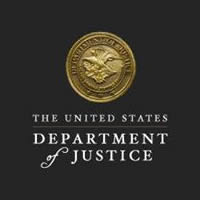United States Attorney Dennis R. Holmes announced that a Miller, South Dakota, woman convicted of Money Laundering was sentenced on April 4, 2022, by U.S. District Judge Roberto A. Lange.
Marietta Ravnaas, age 52, was sentenced to two years of probation, restitution in the amount of $8,200 to Commonwealth of Massachusetts, Department of Unemployment Assistance, and restitution in the amount of $12,100 to Washington State, Employment Security Department, and a special assessment to the Federal Crime Victims Fund in the amount of $100.
Ravnaas was indicted by a federal grand jury on August 3, 2021. She pled guilty on January 6, 2022.
The conviction stemmed from incidents beginning on or about May 20, 2020, and continuing through November 18, 2020, when Ravnaas knowingly participated in a wire fraud scheme to fraudulently obtain CARES Act unemployment benefits.
On March 27, 2020, the CARES Act was enacted. It authorized approximately $2 trillion in aid to American workers, families, and businesses to mitigate the economic consequences of the COVID-19 pandemic. The CARES Act funded and authorized each state to administer new unemployment benefits. CARES Act unemployment benefits are funded by the U.S. government through the Department of Labor and administered at the state level by state agencies known as state workforce agencies.
As part of the scheme and artifice, other participants in the scheme unlawfully obtained, possessed, and shared with one another the personal identifying information (PII) of various individuals. The PII was used to falsely and fraudulently apply for unemployment benefits from various states.
On multiple occasions during the relevant time period, Ravnaas knowingly allowed the fraudulently obtained unemployment benefits payments to be deposited into her bank account. Ravnaas also transferred the fraudulently obtained unemployment benefits payments at the direction of other participants in the scheme. Ravnaas frequently transferred the funds to other participants using WorldRemit, an international money transfer service. Ravnaas kept some of the funds as well to use for her own purposes.
Ravnaas received items in the mail that pertained to fraudulent unemployment benefits, including a fraudulent check from the State of New York and a fraudulently obtained debit card from the State of Michigan.
Ravnaas also knowingly conducted multiple financial transactions that affected interstate and foreign commerce and that involved the proceeds of the wire fraud scheme, as described above. Ravnaas conducted financial transactions using WorldRemit, knowing that the financial transactions were designed in whole or in part to conceal or disguise the nature, location, source, ownership, or control of the proceeds of the wire fraud scheme. Ravnaas knew that the money involved in these financial transactions represented the proceeds of the wire fraud scheme. This includes a WorldRemit transaction on or about May 28, 2020, in the amount of $400.99 from Ravnaas to an individual in Accra, Ghana.
This case was investigated by the Social Security Administration-Office of the Inspector General, the Department of Labor-Office of the Inspector General, the Internal Revenue Service-Criminal Investigation, and the South Dakota Division of Criminal Investigation. Assistant U.S. Attorney Ann M. Hoffman prosecuted the case.
On May 17, 2021, the Attorney General established the COVID-19 Fraud Enforcement Task Force to marshal the resources of the Department of Justice in partnership with agencies across government to enhance efforts to combat and prevent pandemic-related fraud. The Task Force bolsters efforts to investigate and prosecute the most culpable domestic and international criminal actors and assists agencies tasked with administering relief programs to prevent fraud by, among other methods, augmenting and incorporating existing coordination mechanisms, identifying resources and techniques to uncover fraudulent actors and their schemes, and sharing and harnessing information and insights gained from prior enforcement efforts. For more information on the Department’s response to the pandemic, please visit https://www.justice.gov/coronavirus.
Anyone with information about allegations of attempted fraud involving COVID-19 can report it by calling the Department of Justice’s National Center for Disaster Fraud (NCDF) Hotline at 866-720-5721 or via the NCDF Web Complaint Form at: https://www.justice.gov/disaster-fraud/ncdf-disaster-complaint-form.



